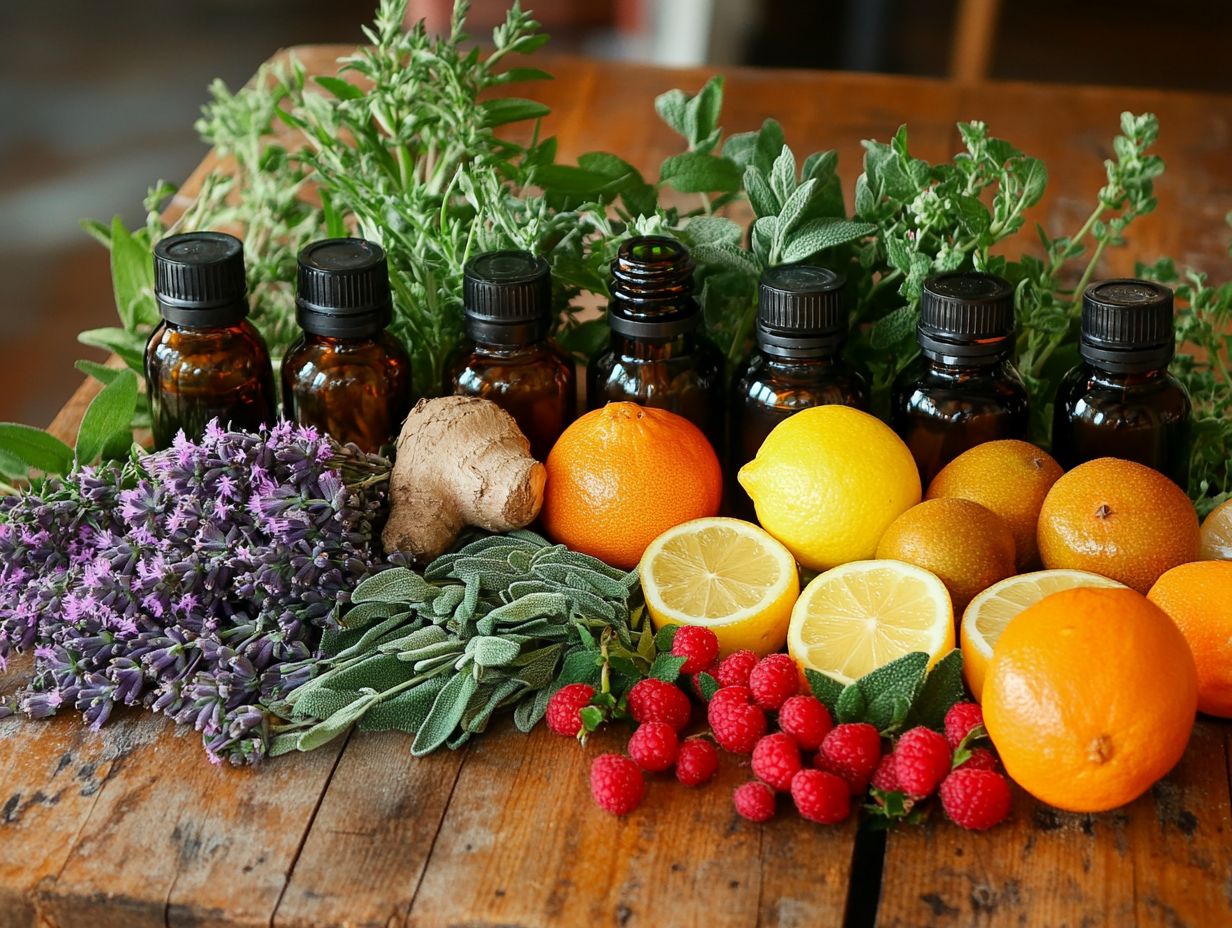In today’s beauty landscape, a significant shift is underway as more people embrace the power of natural ingredients.
With growing awareness of the potential dangers in conventional products, consumers are increasingly seeking alternatives that promote healthier skin and hair.
This article explores the benefits of natural ingredients, highlights harmful chemicals to avoid, and presents effective natural alternatives tailored to various beauty concerns.
Join us in discovering how simple, nature-based solutions can transform your beauty routine for the better.
Key Takeaways:

- Natural ingredients are gaining popularity due to their numerous benefits, including improved skin and hair health.
- By choosing natural products, we can reduce our exposure to harmful chemicals commonly found in beauty products.
- There are plenty of effective natural alternatives available for skincare and haircare, making it easy to avoid the use of harmful chemicals.
The Rise of Natural Ingredients
The increasing prevalence of natural ingredients in skincare and personal care products signifies a notable shift in consumer preferences, prompted by an enhanced awareness of the potential drawbacks associated with chemical ingredients. As individuals increasingly seek eco-friendly products with sustainable sourcing, brands are responding by integrating bioactive natural components such as Aloe vera, Shea butter, and Jojoba oil, which offer significant skincare benefits while maintaining a commitment to safety.
This trend aligns with broader movements within the wellness industry, which aim to address consumer safety concerns while promoting nature conservation.
Why More People are Turning to Natural Products

The increasing prevalence of allergic reactions and contact dermatitis among consumers has prompted many individuals to seek natural products that claim hypoallergenic properties and reduced irritation for sensitive skin.
In this evolving landscape, it is imperative to seek dermatological advice when selecting appropriate skin care products, as dermatology specialists possess the expertise necessary to guide individuals in making informed choices. One crucial aspect they emphasize is the importance of meticulously reading ingredient labels, as many products that highlight natural ingredients may not be suitable for everyone.
While natural components are often perceived as gentle and effective in reducing inflammation, some may still provoke adverse reactions. Conversely, certain chemical formulations—despite facing unjust criticism—can provide faster and more targeted results in addressing specific skin concerns.
Therefore, the insights of a dermatologist can help navigate this complexity, ensuring that both the benefits and potential risks of each ingredient are thoroughly understood.
Benefits of Natural Ingredients
Natural ingredients provide a wide range of skincare benefits, including anti-inflammatory properties and improved skin healing capabilities. This makes them particularly suitable for individuals seeking effective moisturizers derived from botanical sources.
Improved Skin and Hair Health

Utilizing natural skin care products that are enriched with essential oils and botanical extracts can significantly enhance skin and hair health, promoting effective skin healing and reducing inflammation.
For instance, tea tree oil is widely acknowledged for its antibacterial properties, making it a favored option for treating acne and preventing breakouts. Similarly, lavender oil not only provides a calming aroma but also aids in soothing irritated skin and balancing oil production. Furthermore, rosemary essential oil has been shown to stimulate hair growth by enhancing circulation on the scalp, while also offering nourishing benefits that contribute to strong and vibrant hair.
By incorporating these natural components into their daily routines, individuals can attain holistic wellness, reaping the numerous advantages that essential oils provide for both skin and hair care.
Reduced Exposure to Harmful Chemicals
One of the most significant advantages of transitioning to natural ingredients is the decreased exposure to harmful chemicals commonly found in conventional products. This shift often alleviates consumer confusion and skepticism regarding product claims.
In an age where misinformation is prevalent, it is imperative to comprehend the significance of product certification and safety evaluations. These processes serve to validate the authenticity of natural claims, ensuring that products adhere to stringent standards prioritizing both safety and efficacy.
Many consumers erroneously believe that all chemicals are detrimental; however, it is critical to understand that certain synthetic ingredients can be both safe and effective. The challenge resides in differentiating genuinely beneficial products from those that merely exploit marketing strategies, making consumer awareness essential for knowledge-based decision making pertaining to skin health.
Common Chemicals to Avoid

Consumers seeking to improve their skincare routines should be informed about the prevalent harmful chemicals found in numerous beauty products. These substances can provoke dermatological reactions and are frequently insufficiently regulated within the skincare industry.
List of Harmful Chemicals in Beauty Products
Certain harmful chemicals commonly found in beauty products include parabens, sulfates, and synthetic fragrances. These components can trigger allergic reactions and contribute to complications such as contact dermatitis.
Additionally, formaldehyde-releasing preservatives and heavy metals frequently appear in various formulations, posing significant risks to skin health. These substances may disrupt the skin’s natural barrier, resulting in increased irritation and worsening conditions such as eczema and psoriasis.
Individuals with sensitive skin are particularly susceptible, as their reactions can range from mild redness to severe inflammation. Fortunately, there is a growing trend towards safer, natural alternatives such as aloe vera, shea butter, and essential oils.
These ingredients not only provide soothing and nourishing benefits but also enhance overall skin resilience without the risk of adverse reactions, making them excellent choices for the maintenance of skin health.
Natural Alternatives for Skincare and Haircare
Natural alternatives for skincare and haircare offer effective solutions while embodying a chemical-free philosophy that emphasizes the use of renewable ingredients and sustainable sourcing.
Effective Ingredients for Different Concerns
Effective natural ingredients, such as squalane alternatives and botanical extracts, play a significant role in strengthening the skin barrier and enhancing its healing capabilities.
For example, jojoba oil closely resembles the skin’s natural sebum, providing essential hydration and preventing dryness, while chamomile extract possesses soothing properties that can help reduce inflammation and redness.
Additionally, tea tree oil is widely recognized for its antibacterial effects, making it an excellent option for addressing acne without the harsh side effects associated with synthetic treatments. By incorporating these natural ingredients, individuals can holistically address specific skin concerns, promoting a healthier complexion without the adverse effects commonly linked to chemical-based products.


